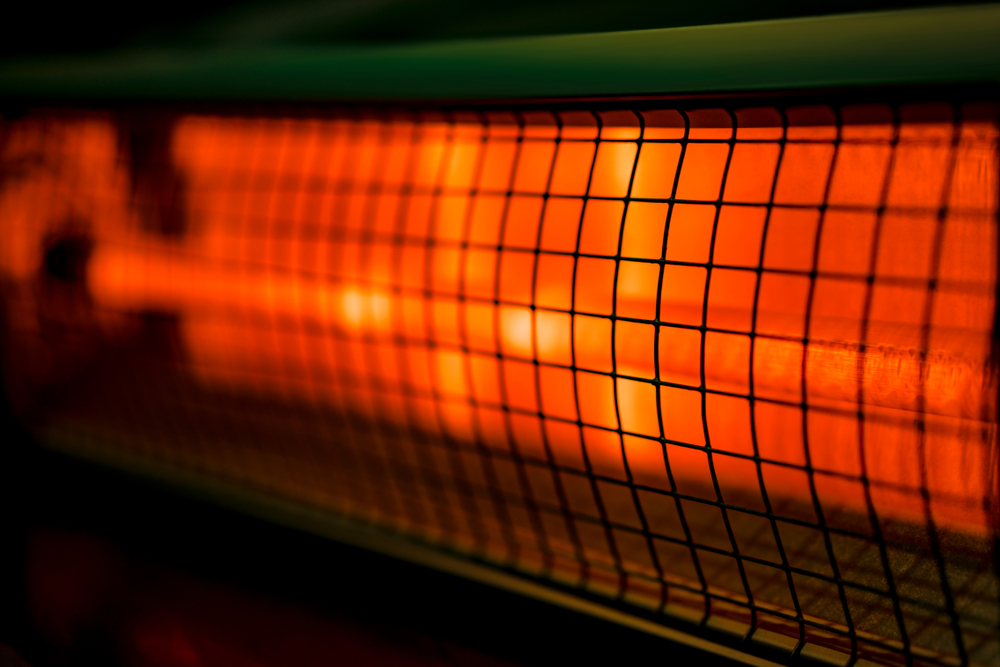A malfunctioning space heater caused a five-alarm apartment fire that killed 17 people and injured dozens in a New York City neighborhood earlier this month. In the wake of the tragedy, officials warn about the dangers of relying on a space heater to keep a home warm. Police say the heater was likely running for several days before it ignited the blaze. Portable heaters aren’t uncommon in low-income housing complexes, where heating units often don’t provide sufficient warmth. These heaters are affordable and don’t take up much room, but they come with significant risks, and winter is the most dangerous time to use a space heater. Almost half of home heating fires happen in December, January, and February, according to data from the National Fire Protection Association (NFPA), and it’s a leading cause of fire death.
More than half of home and apartment fires happen when heating equipment is left too close to mattresses, clothing, and furniture. Space heaters are often to blame for home fires, but they aren’t the only contributor. Home fires are also commonly caused by people failing to clean chimneys which contain highly flammable residue that can easily catch fire. Water heaters, fireplaces, and central heating systems can also cause fires. When used properly, external heat sources aren’t always hazardous. The NFPA recommends several precautions for space heaters, including:
- Checking for a seal from a reputable testing laboratory
- Keeping a heater at least three feet from people and furniture
- Only using a heater on solid, flat surfaces
- Not letting children near space heaters
- Keeping heaters away from foot traffic
- Turning off and unplugging a space heater before bed or before leaving a room
- Plugging a heater directly into a wall outlet instead of an extension cord
- Using a heater with automatic shut-off features and overheating protection
People don't always heed these guidelines, leading to property destruction, injury, and death. If the heating system inside a house isn't sufficient, you'll need to keep warm safely. Knowing how to heat a home after losing electricity during a winter storm is essential for those in cold-weather regions.
First, you shouldn't ever use an oven to heat your home. Gas ovens can release carbon monoxide, a colorless gas that can be fatal when inhaled. Electric ovens can be left on for longer than their gas counterparts, but leaving a range on for prolonged periods increases the chance of an electrical malfunction that could lead to a fire. You should also have chimneys and fireplaces inspected and cleaned regularly by a professional and test smoke alarms once a month to ensure you'll be alerted immediately if a fire breaks out. If you lose power during a storm, candles should only be used if there's adequate ventilation in the room.
Fires Caused By Negligence
Even when a fire isn't set intentionally, negligence may still be at play. Two Bronx fire apartment complex residents recently filed a lawsuit against the building's current and former property owners. The plaintiffs are seeking $1 billion in compensatory damages and $2 billion in punitive damages on behalf of the fire victims. The lawsuit alleges that the building owners didn't ensure that fire alarms and fireproof doors were functional. Some building residents were so accustomed to smoke alarms malfunctioning that they didn't realize there was any real threat during the fire. The residents also plan to sue New York City for not enforcing a requirement for landlords to install self-closing doors. That lawsuit names two city departments and former mayor Bill de Blasio.
A landlord or property owner might not intend to harm a tenant, but if their action or lack thereof causes injury, they can be found negligent in court. In the case of the Bronx fire, residents filed several complaints about living conditions, including a lack of adequate heat. Fires caused by landlord negligence have a range of contributing factors, including faulty wiring, code violations, defective alarms, blocked fire exits, and improperly maintained heating equipment. If a court finds that a property owner failed to exercise reasonable care to prevent a fire, they may be considered negligent.










